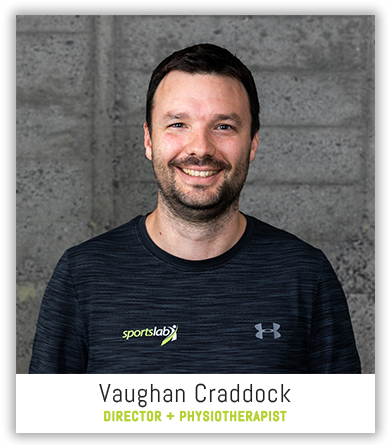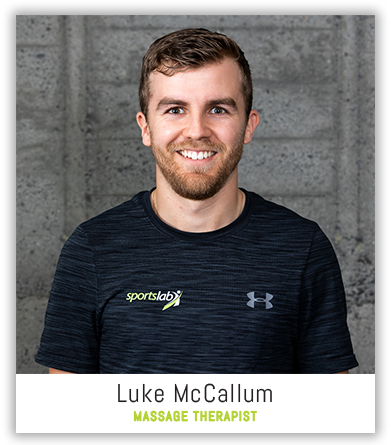Redefining Performance.
Performance (noun). The completion of a task with application of knowledge, skills and abilities.
Performance, by definition, is a simplistic word. One that is purely a successful completion of a task. But all words are descriptive not prescriptive and so, especially in the sporting or athletic world, the word performance holds a lot of weight. What associations do you have with the word ‘performance’? What images spring to mind? Would a phenomenal sporting event or athlete materialise in your mind? Do you think of the Olympics or maybe a world record being broken? Do you think of the people in your local running race that turn up and win?
What about this; when you think about performance, does it necessarily mean winning?
If we say that true performance means winning then, in our dualistic society, we also imply the flip side that not winning cannot equal true performance. We make performance a game of comparison, that to truly perform, we must be better than our peers or better than our past selves. On face value this can appear unproblematic. But the waters get muddied if we start breaking down these comparisons. There are athlete categories for a reason. We wouldn’t put a 12 year old sprinter next to a 25 year old sprinter and make comments about poor performance from the 12 year old for coming second to the 25 year old. Likewise, we wouldn’t expect a female weightlifter to be lifting the same as her male counterpart. In sport, we ultimately know that athletes have different skills and abilities, and, on a macro level, we group these athletes in order for them to show performance within their true ability levels. Similar is true within the same athlete; we wouldn’t expect an ironman in his 50’s to be finishing his events in the same time brackets as he did in his 30’s.
Yet, all too often, we compare ourselves to our peers and rank ourselves as better or worse athletes in the process. But some wise old guy called Theodore Roosevelt once said that “comparison is the theft of joy”, and maybe comparison is also the theft of the true pursuit of performance.
Here at Sports Lab we like to define performance a little differently from this simplistic comparative model. If performance is a completion of a task with application of knowledge, skills and abilities, then surely working on increasing our knowledge, skills and abilities and applying these to the completion of a task, raises the bar of performance. Performance then is the ongoing improvement of ourselves and expanding our envelope of what we are capable of, to achieve our best.
So if we started applying this mindset to performance, and doing away with the simplistic comparative model, how would this change our approach? Applying this mindset can and should alter the way we train, the way we recover, how we view our lifestyle and diet, ultimately it should change the way we view most areas of our day-to-day lives. With all that being said, let’s look at two common myths that we believe prevent people from pushing their envelope of knowledge, skill and ability to raise their performance, and where we see there needs to be a mindset shift.
“Training Load is the Only ‘Stress’ on our Body that Needs to be Accounted for”
In order to expand our envelope, we need to apply stress to our bodies, and then allow adequate recovery for positive adaptation to the stress. Here’s the secret; it’s really the recovery from stress rather than the stress itself, that makes us better.
And here’s the catch; all stress counts, not just training stress.
As humans, we are good at compartmentalising each element of our life. We have multiple stressors that we balance every day, whether it’s our work life, family life, training etc. Ultimately, we realise that stress and too much of it is not that great for us. But here is the thing, how often do we think about stress from work/life as completely separate to the stress from exercise? We can get caught out viewing each of our stressors as separate and ignoring the stress they put on us and the flow on effect into other parts of our life. But physiologically the body does not differentiate between different types of stress, and in fact you can see very similar internal responses to both work/life stress and prolonged exercise.
The anxiety from a work deadline may result in an increase in heart rate and an increase in sympathetic nervous system contribution, causing an increase of secretion of cortisol or adrenaline… responses we would see during and after a training session. So, should we not be thinking about all the factors that create a stress response in our bodies? If we think of ourselves as a glass and stress is the fluid you put in it, then each day you add in a bit for your work (meetings/deadlines/workload), then add in social stress (family, friends, emotional stress), and finally add in exercise.
If we think of that glass that we can fill with stress, how many times are we all over-filling our glasses every day or even every week? How many times have you been stressed at work or in life and during these times found that training has plateaued, competition has suffered, or maybe you do that one hard session and ‘suddenly’ have a niggle to deal with? You may even sit there thinking, what have I done wrong, I monitored all my training and I did it as prescribed, I should have no reason for this injury, my training was executed perfectly. But did you consider that you had a massive deadline at work, or the fact that you have had poor sleep for at least 2 weeks? Maybe you have been anxious about the current pandemic? Maybe you are anxious because you are separated from family and loved ones? Or maybe you didn’t realise that you were under fuelling for the exercise you were doing and so you have stressed your body into a state of low energy availability. Or maybe this is like one of those bad multi-choice questions where the answer is D) All of the above.
In order to increase our envelope we need to understand the actual doses of stress our body receives, in order for us to get adequate recovery from that stress. If we are turning the tables on our pursuit of performance then should we not be considering how stress (and all aspects of it) is affecting our bodies ability to adapt and recover.
“Healthcare Should be Accessed in a Reactionary Way”
Another way in which we can expand our envelope of knowledge, skill and ability is to stop treating healthcare like the ambulance at the bottom of the cliff.
A common truth exists in healthcare where providers are largely only called upon when pain arises or when a person’s perception of their health is non optimal. We see this among clients of all walks of life whether avid gym goers, active mums, weekend warriors, athletes or retirees. But the healthcare model shouldn’t be this way. Instead it should offer a holistic approach that not only treats pain and injury, and not only just helps prevent injury, but one that offers people from all walks of life the ability to pursue their own performance.
Health and performance need to stop being viewed as the absence of pain and injury. Instead, we should start recognising that pain is purely feedback from the body. Our body is fundamentally set up to give us feedback, to help classify the stressors on the body as being low, medium or high risk on a continuum. If we learned to listen to subtle cues like stiffness and low-grade sensory disturbances, it gives us the ability to slightly adjust the input our body receives to reduce the likelihood of high-grade threat responses. It’s like our body whispers to us. And when we don’t listen to the whisper it talks to us. And when we don’t listen to the chat, it yells at us, before becoming full blown noise.
Is the ‘she’ll be right’ attitude to blame here? Up to a point, maybe. But it also seems like so many of us have managed to establish a poor baseline, and that we are truly unaware that our bodies are even talking to us. Maybe it’s because we live in such a fast paced and stressed society we are somewhat “addicted” or desensitised to the adrenaline from being in a constant state of stress. Or maybe it’s because we idolise toughness and the ability to push through, prioritising results over the way that we feel. Whatever we blame, chances are that, just like a frog in a kettle where the temperature changes incrementally so the frog doesn’t notice and eventually cooks itself rather than hopping out, the changes have happened so slowly that we fail to notice the transition.
Healthcare can and should be a tool to tell us that our water is getting a little hot. It could be as simple as a conversation with your therapist about different methods that our body utilises to whisper to us when things aren’t quite right, or it could be them helping you to build buffers and “reprogram” the neuromuscular system.
Whatever approach is best for your current needs, a holistic healthcare model recognises that everyone has a different capacity, above which they will be symptomatic and below which they are asymptomatic. It recognises that high performing people can filter a lot of information out but doing so is detrimental. A holistic healthcare model helps teach clients to learn to read the low-grade symptoms that their body has been giving them for a long time that they’ve been ignoring. It enables people to make changes early, and to have a timely and appropriate response to their body’s feedback, to stay in an optimised state. It ensures that symptoms are not catastrophised and that performance can be improved with small, accumulative and sustainable changes that suits every individuals’ needs, goals and capacities.
Ultimately, it our belief that in order to increase our performance envelope, we need to understand the body’s mechanisms that alert us to problems in order to keep us safe and optimised. So instead of treating healthcare as a tool to “undo” when we are symptomatic, we can use it as a tool to improve our understanding of our physical body and it’s feedback, as well as retraining our system to improve our baseline, learn the skillsets we need to fill the gaps in our current state of health and performance, and raise the capacity above which we risk symptomology.
This blog is instalment one of a four-part series on ‘redefining performance’. We’ve bought together practitioners from all our Sports Lab services for a collaborative voice on the topic. Keep an eye out for number two, three and four.






